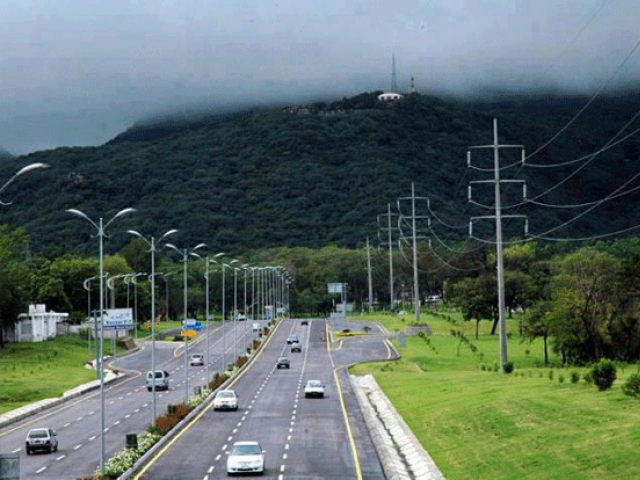Capital gets three wetlands
They will help clean wastewater before it is dumped into Rawal Lake

Islamabad. PHOTO: EXPRESS/FILE
A senior Capital Development Authority (CDA) official said on Sunday that following instructions from the Supreme Court, they had completed the construction of wetlands in the federal capital.
Constructed wetlands treatment systems are an engineered system utilising natural processes involving wetland vegetation, soils, and their associated system for treatment of wastewater.
The official, who was aware of the details of the project but requested not to be named since he was not authorised to speak to the media, said that the wetlands will improve the quality of water and reduce harmful effluents in the water that passes through the storm drains of the city before emptying into the Rawal Lake.
He added that the wetlands have been built at three places in the city, including Muslim Colony, Bari Imam and Bani Gala at the meager cost of just Rs1.5 million.
Now, the official said, CDA has handed the wetlands over to the sanitation directorate of the Islamabad Metropolitan Corporation (IMC) to monitor and maintain its performance.
As a sample of the impact of the wetlands, the official said, previously, sewerage waters passing through the canals of the federal capital turned pitch black before draining into the Rawal Lake. After the construction of the wetlands, however, he said that a marked improvement had been seen in the water which was much clearer, if not completely free of debris and other contaminants.
Noting that the wetlands were built under the supervision of CDA Chairman and Islamabad Capital Territory (ICT) Administration Chief Commissioner Aamir Ali Ahmed, the official said that Ahmed had directed that the authority will fund the cleaning of all other nullahs and storm drains in the federal capital through this low-cost intervention.
Mayor reviews wetland project
Meanwhile, IMC Mayor Sheikh Anser Aziz, along with Sanitation Director Sardar Khan Zimri and Media Coordinator Mohsin Sherazi paid a surprise visit to the Rawal Dam wetlands project for an inspection.
Aziz expressed his concerns over the rising pollution in the dam’s waters owing to the effluents being drained into it from the local nullahs and streams - particularly the Korang Nullah.
Noting that the wetlands act as filters against polluted water, he said that such experiments shall be extended to all parts of Islamabad to clean waters in all the natural nullahs and streams.
Apart from the three wetlands already established, Aziz suggested a fourth will be built for the stream passing through the Rose and Jasmine Garden.
With the CDA having already transferred land to the IMC for the purpose, Aziz said that the IMC desires to establish multiple water filtration plants in the city, preferably starting from Korang Bridge, for widespread results.
Work on the wetlands had begun last September. While it was supposed to have been completed in a matter of weeks, the work faced delays for unknown reasons. Per the plan, contaminated water of nullahs would be diverted to specially designed tanks for sewage treatment.
At this stage sedimentation will be carried out in the tanks and water will be decontaminated by about 90%. After treatment in the tank, the water will be released in wetlands where special plants and the soil will be implanted in such a way that will further purify the water before it enters the dam. To control seepage of contaminated water from the tanks, a special plastic membrane has been laid at the bottom of the tanks.
Published in The Express Tribune, June 8th, 2020.





1724912122-0/Untitled-design-(1)1724912122-0-208x130.webp)













COMMENTS
Comments are moderated and generally will be posted if they are on-topic and not abusive.
For more information, please see our Comments FAQ